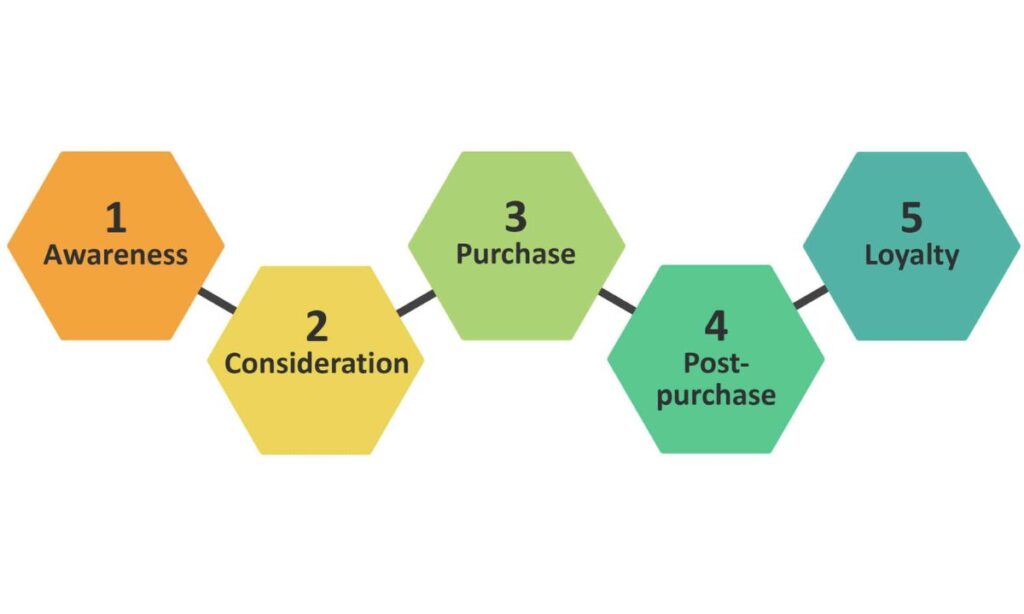In today’s customer-driven marketplace, understanding the customer journey has become one of the most critical aspects of business strategy. The path a customer takes from their first interaction with a brand to becoming a loyal advocate is no longer linear—it’s a complex web of touchpoints and experiences. This is where customer journey consulting comes into play. It involves a strategic approach to analyzing, mapping, and optimizing the entire customer experience to ensure that every interaction adds value, fosters engagement, and builds lasting loyalty.
For businesses aiming to succeed in a competitive landscape, customer journey consulting is not just a trend; it’s a necessity. It bridges the gap between customer expectations and business offerings, ensuring seamless and meaningful interactions at every stage. Let’s delve deeper into what customer journey consulting entails, how it works, and why it matters for businesses of all sizes.
Understanding Customer Journey Consulting
At its core, customer journey consulting focuses on the process of understanding and improving how customers interact with a brand across multiple channels. This includes everything from initial awareness and consideration to purchase, retention, and advocacy. Consultants specializing in this field work with businesses to create a detailed map of the customer journey, identify pain points, and implement strategies to enhance the overall experience.
A customer journey map is a visual representation of every step a customer takes while interacting with a brand. It includes touchpoints such as browsing a website, engaging with social media, visiting a physical store, interacting with customer support, or receiving post-purchase communication. Customer journey consulting ensures that these touchpoints are aligned with customer needs and expectations, leading to better satisfaction and loyalty.
- Data Collection and Analysis
Consultants begin by gathering data from various sources, including CRM systems, customer feedback, website analytics, and social media interactions. This data provides insights into customer behavior, preferences, and pain points. - Customer Segmentation
To create a more targeted strategy, customers are grouped into segments based on demographics, behaviors, and purchasing patterns. This helps businesses understand the unique needs of different customer groups. - Journey Mapping
A comprehensive customer journey map is created to illustrate every step of the customer’s experience. This includes visualizing how customers discover the brand, interact with products or services, and engage post-purchase. - Identifying Pain Points
Once the journey is mapped, consultants identify areas where customers may encounter friction, confusion, or dissatisfaction. These pain points can include long wait times, complicated checkout processes, or lack of personalized communication. - Optimization and Strategy Development
After pinpointing pain points, strategies are developed to address them. This could involve improving website navigation, automating customer service processes, or creating personalized marketing campaigns. - Implementation and Monitoring
The final step involves implementing the recommended strategies and continuously monitoring their impact. Regular feedback and data analysis ensure that the improvements remain effective and relevant over time.
Importance Of Customer Journey Consulting
Customer journey consulting is not just about fixing problems—it’s about creating exceptional experiences that keep customers coming back. Here’s why it’s crucial for businesses:
1. Meeting Rising Customer Expectations
Today’s customers have higher expectations than ever before. They demand seamless, personalized experiences and are quick to switch brands if those expectations aren’t met. Customer journey consulting helps businesses understand these expectations and design experiences that consistently exceed them.
For example, if customers frequently abandon their online shopping carts, a consultant can identify the issue—whether it’s a complicated checkout process or unexpected shipping costs—and provide actionable solutions to address it.
2. Building Brand Loyalty
Loyalty is the result of consistently positive experiences. By addressing pain points and enhancing interactions, customer journey consulting helps businesses foster trust and loyalty. A loyal customer is not only more likely to make repeat purchases but also to become a brand advocate, spreading positive word-of-mouth and driving new customer acquisition.
3. Gaining a Competitive Advantage
In crowded markets, businesses that prioritize the customer experience stand out. Customer journey consulting provides the insights needed to differentiate a brand by delivering superior experiences. This not only attracts new customers but also retains existing ones, giving the business a competitive edge.
4. Increasing Customer Lifetime Value
Customer journey consulting emphasizes long-term relationships over one-time transactions. By enhancing the overall experience, businesses can encourage customers to spend more, return more often, and remain loyal for years to come. This significantly boosts CLV, which is a critical metric for measuring business success.
5. Streamlining Internal Processes
The benefits of customer journey consulting extend beyond the customer-facing aspects of a business. It also helps streamline internal processes by identifying inefficiencies and redundancies. For instance, if multiple departments handle customer complaints without clear communication, consulting can recommend an integrated system that improves efficiency and response times.
6. Adapting to Omnichannel Experiences
Modern customers interact with brands across multiple channels, including websites, mobile apps, social media, and physical stores. Customer journey consulting ensures that these channels are seamlessly connected, providing a consistent and cohesive experience no matter where or how customers engage.
7. Leveraging Data for Better Decisions
Customer journey consulting leverages data to drive decision-making. By analyzing customer behaviors and preferences, businesses can prioritize initiatives that have the most significant impact. For instance, data might reveal that customers are highly engaged with social media ads but frustrated by slow website load times, allowing the business to allocate resources effectively.
The Future of Customer Journey Consulting
As technology continues to evolve, customer journey consulting will play an even more significant role in shaping business strategies. Artificial intelligence and machine learning are already being used to predict customer behavior and personalize experiences in real time. Additionally, the rise of immersive technologies like augmented reality and virtual reality will add new dimensions to customer interactions, requiring even more sophisticated journey mapping and optimization.
Conclusion
Customer journey consulting is an invaluable tool for businesses looking to thrive in a customer-centric world. By analyzing and optimizing every aspect of the customer experience, it helps brands meet rising expectations, build loyalty, and gain a competitive edge. More than just a problem-solving process, it’s a strategic approach to creating lasting relationships with customers and driving sustainable growth.
In an environment where customer experience is often the deciding factor between success and failure, investing in customer journey consulting is no longer optional—it’s essential. By understanding and addressing the complexities of the modern customer journey, businesses can ensure that every interaction leaves a positive impression, creating a loyal customer base that drives long-term success.
ALSO READ: Top 6 Features Every Small Business Website Package Should Include







